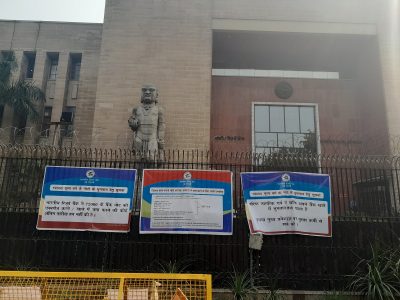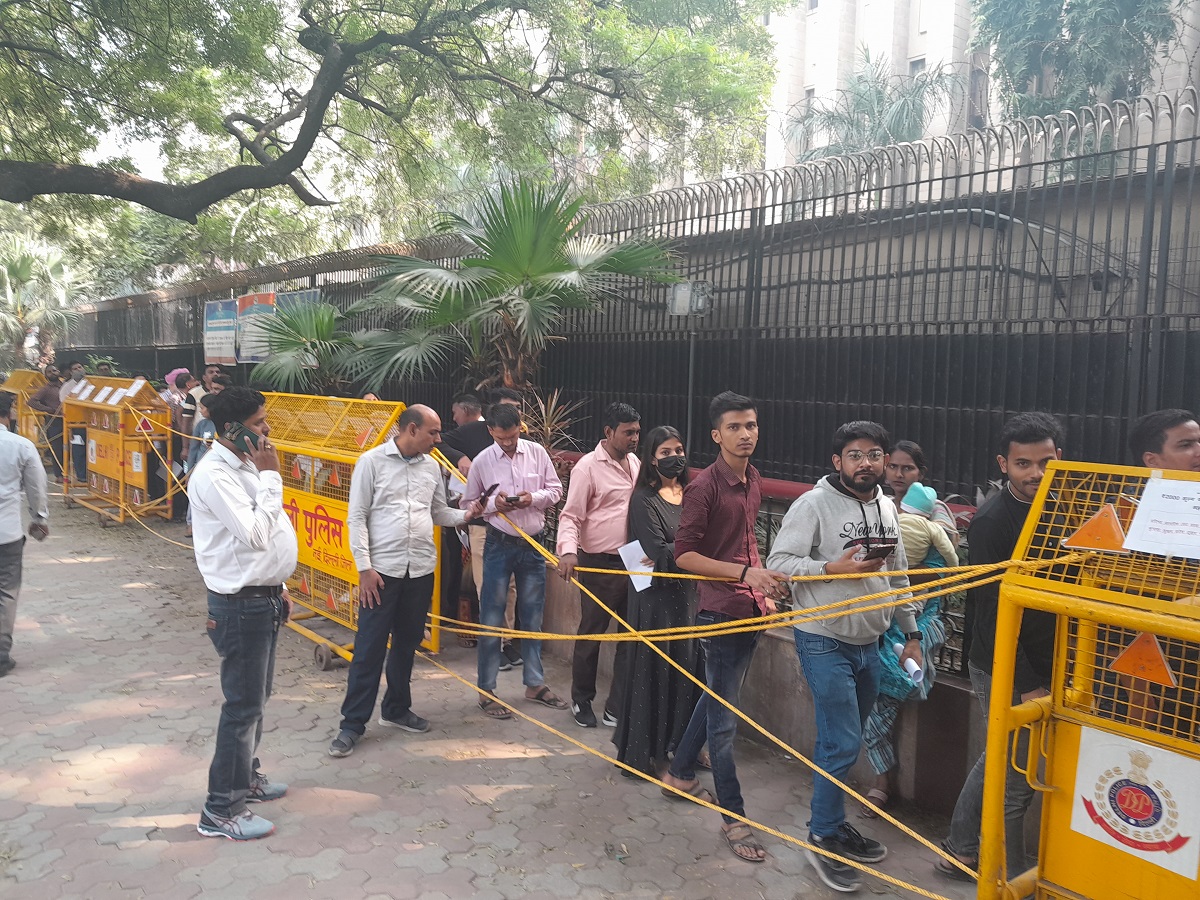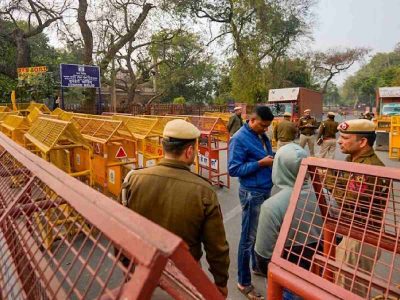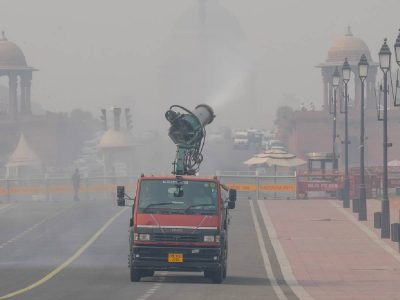Khushi Pandey waited outside the headquarters of the Reserve Bank of India for her friend, who was in a long queue of people who travelled to Delhi from different states of the country to exchange their Rs 2000 notes.
“We had come here a few days ago to exchange Rs 10,000 but the counter was closed at 1 pm and we couldn’t exchange the money. So, we have come here again early in the morning,” she told Patriot.
The deadline to exchange the Rs 2,000 notes at bank branches ended on October 7. Now the exchange facility is available only at the 19 RBI offices across the country including the national capital Delhi, Chennai, Guwahati, Jaipur, Kanpur, Kolkata, Lucknow and Mumbai.
According to the RBI, they are offering a Triple Lock Receptacle (TLR) form to people for depositing Rs 2000 banknotes in their bank accounts.
In a statement, RBI Regional Director Rohit P Das said, “We encourage customers to send Rs 2000 notes through insured post to the RBI for direct credit in their accounts in the most seamless and secure manner. This will save them from the hassle of traveling to specified branches and standing in queues.” Both the options of TLR and insured post are highly secure, and the public should not have any concerns about these choices, he said. The Delhi office alone has received about 700 TLR forms so far. The RBI has been consistently communicating these two options, in addition to the exchange facility at its offices, he added.
Like Khushi, many women coming here face different kinds of problems because there is no separate facility for them.
The senior citizens’ queue is nearby.
“People line up from early morning. The service is also slow because there are two types of people: those who want cash and the other, who want to transfer money in their account,” said a 12th standard student, who belongs to a middle-class family in north-east Delhi.
“We even had to take a two-day leave from school to exchange money. Middleman is also here and he wants a Rs 400 commission on every Rs 2000 note.”
This was confirmed by Patriot when a middleman asked this reporter for a 10% charge on exchange of notes.
Even as middlemen are making money, those connected in high places and working in banks too are struggling. A person wearing a badge of ‘Ministry of Home Affairs’ and a woman working in HDFC bank too were part of the queue.

The banners outside the gate mention the guidelines and process of exchanging. One of the banners mentions that there is no deadline of exchanging/depositing Rs 2000 notes.
Neetu, who works in a private bank, was there to exchange the Rs 2000 notes saved by her mother.
“I tried the bank and post office at first, but they refused to exchange. We don’t know what rules the government has made — only the common man is in trouble while the rich can exchange by giving money,” she added.
The Rs 2000 notes came into circulation in 2016 after Rs 1000 notes were pulled out during the sudden announcement of demonetisation, which left several people stranded in queue and hundreds losing their lives.
Sunil Kumar is another who has landed from outside Delhi. Originally from Etah (UP), Kumar wanted to change five notes of Rs 2000.
“My father is a farmer. When he heard about the need to change notes, the deadline [in local bank branches] was already over. He visited the bank but they refused to change notes.
“I am working in Noida. He called me for help. I went to Etah and returned with the notes. Besides time, I had to also spend Rs 2000 in the process. We are a poor farming family, so it matters to us,” he said further.
Chaotic situations sometimes arose in the queue. The security officer’s announcement on the mic to not allow bags or children inside created further problems.
Feeling helpless, he also called a force to maintain discipline.
Rohit also came from UP (Mathura) to exchange two notes. He is staying in a rented room costing Rs 500.
“Even if I end up spending a thousand rupees in the process, I can save at least Rs 3000,” he said.
Rakesh came from Haryana’s Mahendragarh district to change three notes.
“During the Diwali cleaning, we found these notes. When I visited the nearby PNB branch, they refused to exchange. So, I came here,” he told Patriot.
Another lamented the exhaustive procedure. “We need at least four hours to exchange. There is a long queue inside too. The senior citizens, however, are getting some relief.”





